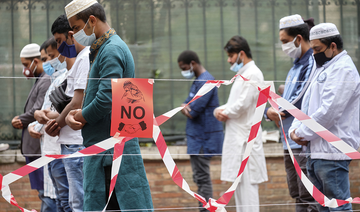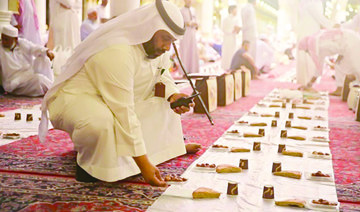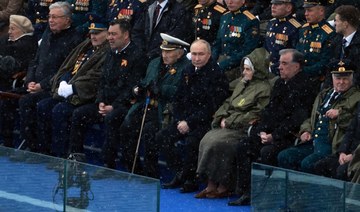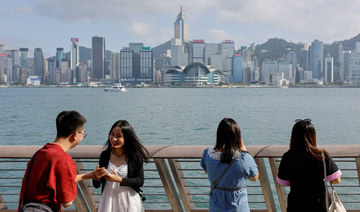ROME: Muslims in Italy celebrating their first post-pandemic holy month are enjoying what one described as a “Ramadan of rebirth and freedom.”
Mosques and Islamic centers around the country are organizing prayers and gatherings along with distribution of food and aid for the needy.
“It is a time of participation and sharing. Fasting leads me to have greater involvement with others and, above all, with those in difficulty,” Monia Ali, who works at the University of Brescia, near Milan, told Arab News.
Raisa Labaran, a youth worker in an Islamic center in Brescia, said: “This is a Ramadan of rebirth, of freedom. Even if the coronavirus is not completely gone and we have to be still careful with distancing, this year it is possible to experience the true meaning of this month which is solidarity and community.”
The Italian Ministry of Foreign affairs sent its “wishes for a Ramadan of serenity and peace to the entire Muslim community in Italy and the world.”
Many city councils and Roman Catholic bishops around the country also offered Ramadan greetings to local Muslim communities.
The Italian government lifted emergency measures on April 1, allowing Muslims to gather in mosques to pray. “But we will try to respect the safety measures because the virus is still circulating,” Labaran said.
Italy’s northern Lombardy region was one of the first to be hit by the wave of infections in Europe.
In Vicenza, an industrial city near Venice, representatives of the 30,000 Muslims living in the area met local authorities and outlined activities planned for Ramadan.
“We will always be wearing a mask,” Abderahim Rom, president of the Ettawba Cultural Center, told a local newspaper.
In southern Italy, where the economic slump after the pandemic has hit hard, Ramadan will be a time to help those in need.
Caritas, a Roman Catholic relief organization, donated food and aid to needy Muslims in Catania, the second-largest city in Sicily, which has been hit hard by unemployment following the closure of several industrial sites.
“We want to give a concrete sign of brotherhood to our Muslim friends at such an important time,” Don Piero Galvano, director of Caritas in Catania, told Arab News.
Distribution of food is organized at the city’s mosque, and will be handled by Catholic and Muslim volunteers every night during Ramadan.
Kheit Abdelhafid, the mosque’s imam, said that Caritas’ “gesture reflects the importance of our friendship and brotherhood, and is more than welcome in the name of peaceful coexistence and fruitful dialogue.”

























